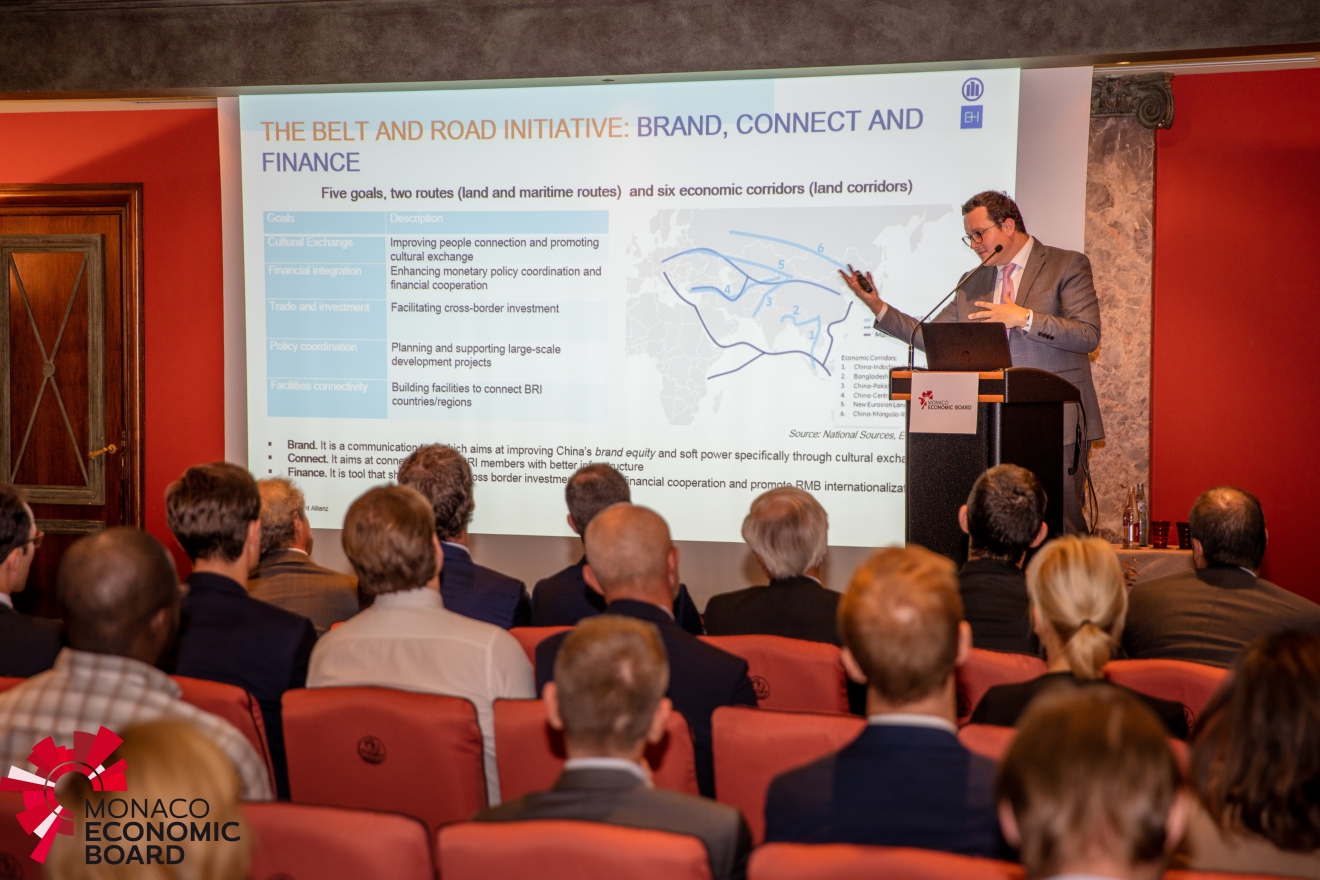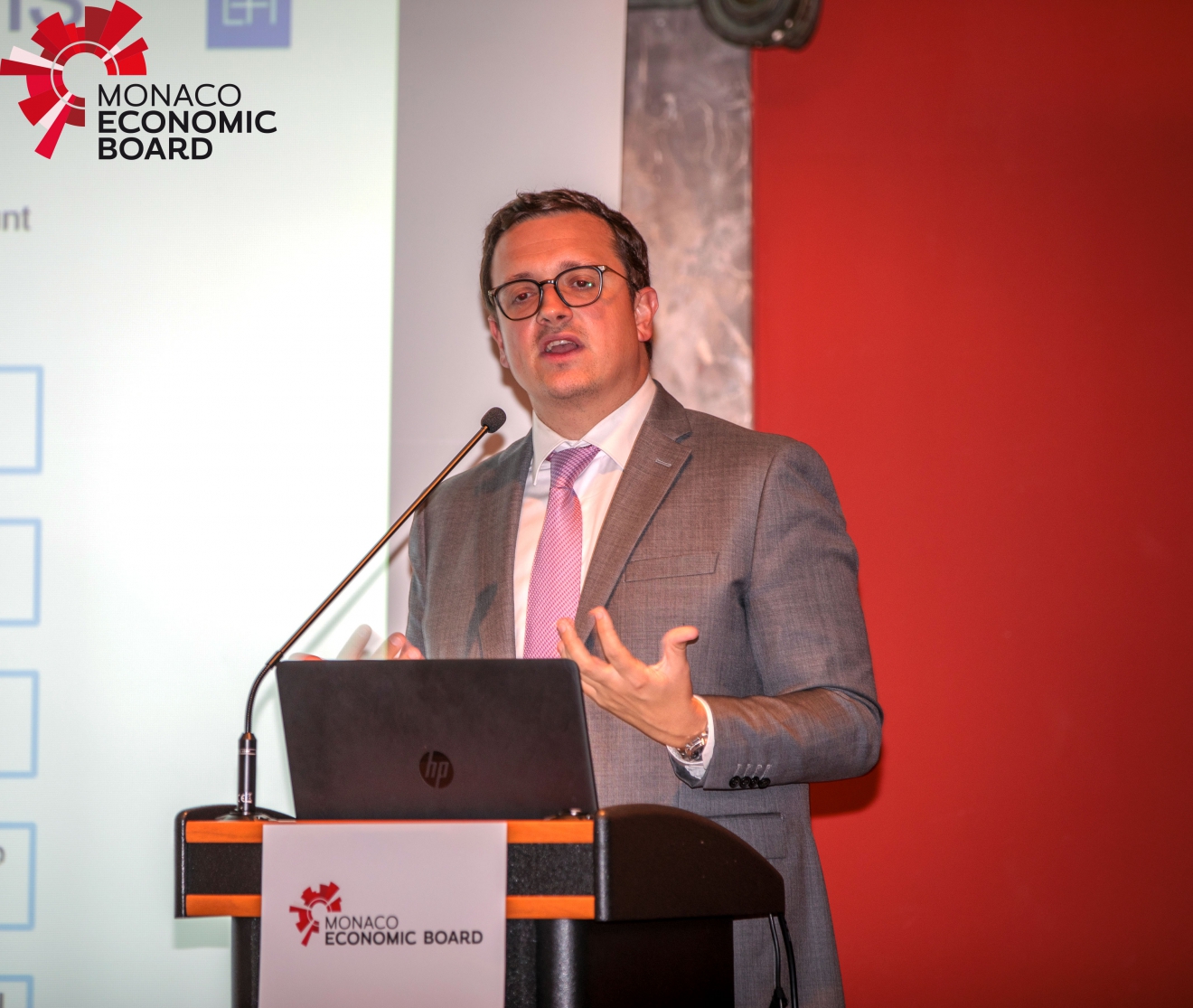Ludovic Subran Conference : The Belt and Road
In front of 70 economic stakeholders in the Principality, Chief Economist at Euler Hermes and Head of Macroeconomic Research at Allianz, Ludovic Subran, presented his highly instructive vision of the Chinese Belt & Road Initiative.
Organised with Monaco’s Junior Chamber of Commerce (JCEM) and supported by Monaco Asset Management, it was a chance for MEB members to learn about the ins and outs of this global-scale project, equivalent to ten Marshall Plans implemented in Europe by the USA at the end of the Second World War. The figures speak for themselves: $1,100 billion invested in more than 60 countries in Eurasia and Africa, representing a third of global GDP (not counting China’s GDP).
Ludovic Subran began with a brief overview of the global economic situation and its prospects, positive despite a slowdown but unsettled by the unstable nature of the American administration. The consequences of sweeping changes taking place are affecting China, which feels justified in its strategy of diversification into international development.
Its ambitions are at the height of resources available: to develop land and maritime transport infrastructures, the famous New Silk Roads. According to the economist, it is also proposing a development model that competes with the Western model, less demanding when it comes to standards and democratic principles and quicker to implement. This is a case of “soft power” supported by significant investment and the establishment of a financial, industrial and even cultural platform intent on making China a new “Middle Kingdom”.
While Ludovic Subran spoke of “lace-like” investment openings, as this development platform is complex and subtle, he did not hide the associated risks and weaknesses: nationalist brake in countries where the Chinese presence may become dominant as in Myanmar; viability in the long-term as maintaining these infrastructures will be a challenge; and risks to reputations of companies associated with an approach that is not always in line with Western social and environmental values. Finally, given the number of countries involved, legal monitoring will be extremely complex, not to mention the instability of certain regions, starting with the Middle East.
It seems the tentacular nature of the project is both its strength and weakness. Yet with the Belt and Road Initiative, China, which is set to become the world’s largest economic power by 2030, confirms its vast capacity for innovation in terms of public policy.
For MEB entrepreneurs present, this illuminating talk is another brick in their understanding of China, with whom the Principality has forged valuable ties notably during this year’s Trade Mission to Beijing, accompanying an official visit by HSH Prince Albert II to China.
Click HERE to see the gallery
Click HERE to download the presentation (in PDF)


